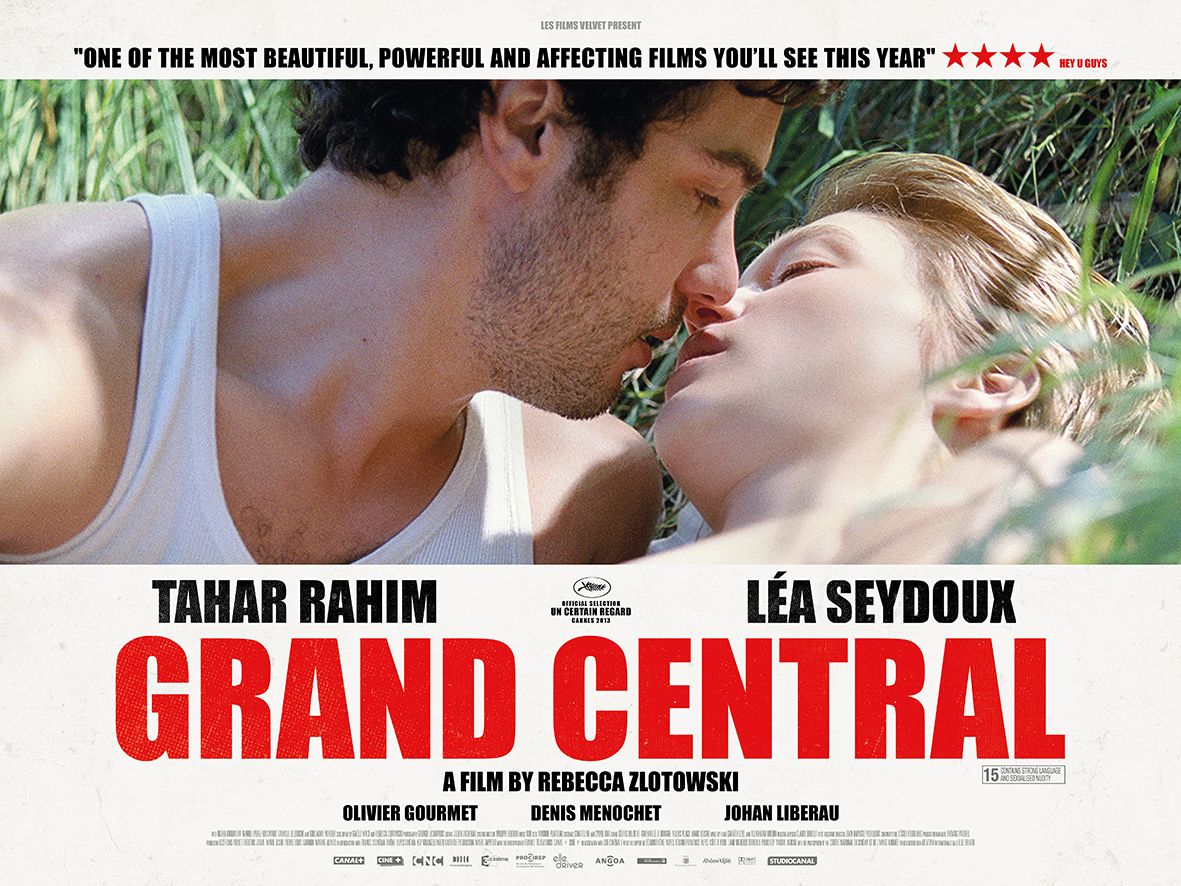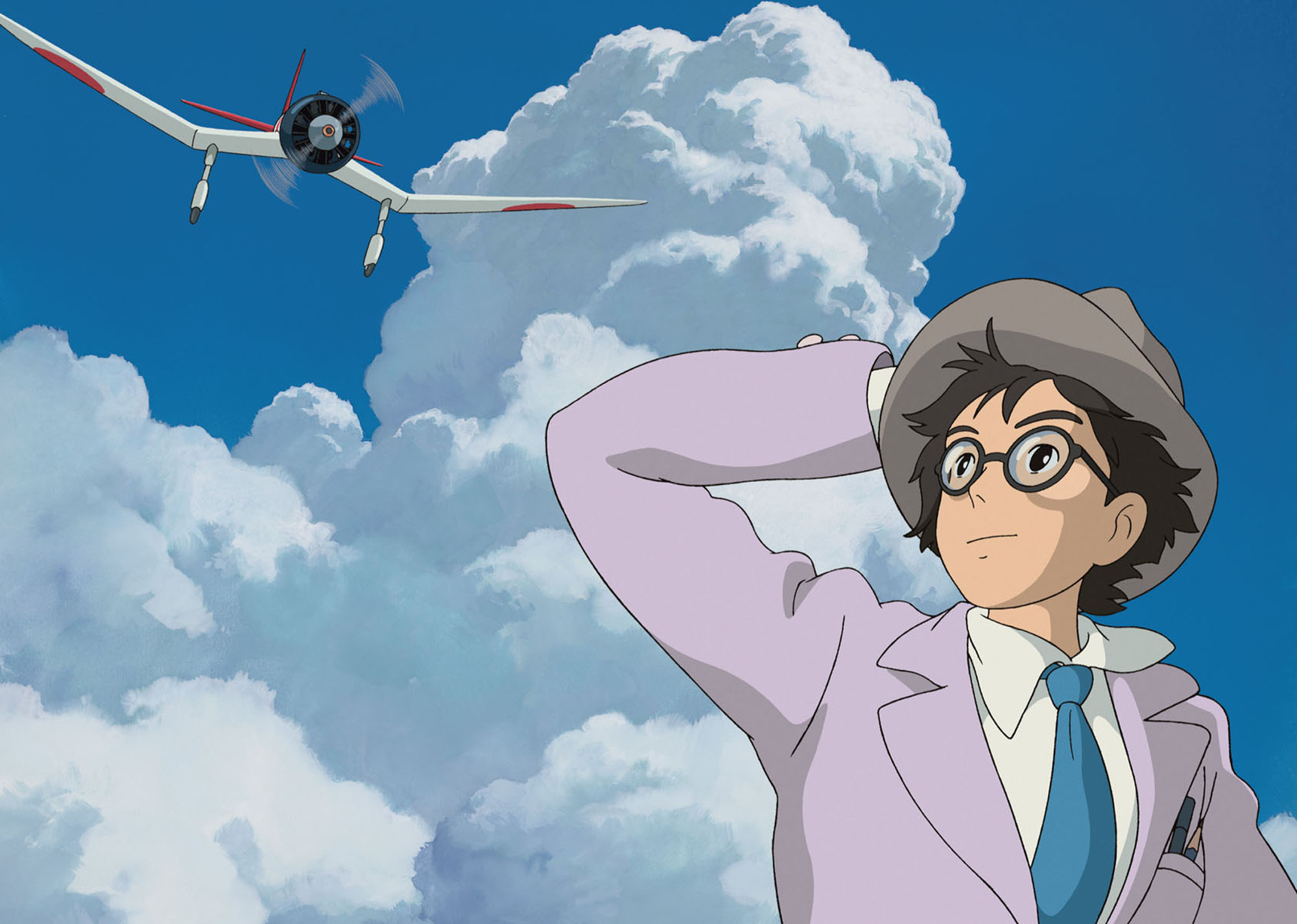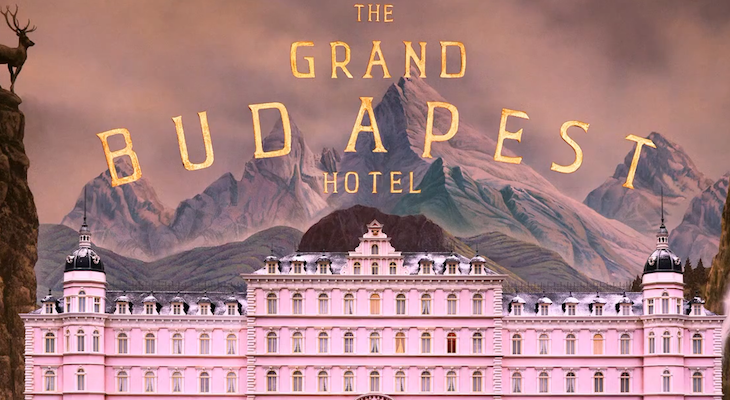It’s that time of year, the time in which we all become rather jolly and happy and celebrate the festivities which winter adorns on us. It’s also a time to look back and contemplate yet another year passing, to sum up our high points and low points and put a definite marker on things. In this case, it’s time to think about film. Which were the best moments and which were the stinkers? There’s no time for dilly dallying; things just got serious. Without further preamble, then, here are the top ten films I have seen during 2014. Whilst the list is almost complete, it doesn’t include a number of films which I am yet to see. What’s more, the release dates of a number of the films may vary but I have decided to include any film which I saw at the cinema over the past year, regardless of initial release date. So, Winter Sleep, Ida and Nightcrawler aside, read on and don’t forget to include your favourite films of the year in the comments below!
10). Grand Central (Rebecca Zlotowski – Director)
 Grand Central is a truly hard film to pin down and despite starring two of France’s hottest stars (Lea Seydoux and Tahar Rahim) saw a relatively small international release. The film is set in a nuclear power plant and follows the affair between two factory workers. The film is relatively quiet and brooding and yet, builds an almost imperceptible sense of threat throughout. A lot of this is down to the genius scoring of Robin Coudert, whose music is layered over each scene, marking subtle changes in the behaviours of each character. Whilst the film’s pace may not be to everyone’s tastes, the narrative is worth it for those who can bear to be a little more patient.
Grand Central is a truly hard film to pin down and despite starring two of France’s hottest stars (Lea Seydoux and Tahar Rahim) saw a relatively small international release. The film is set in a nuclear power plant and follows the affair between two factory workers. The film is relatively quiet and brooding and yet, builds an almost imperceptible sense of threat throughout. A lot of this is down to the genius scoring of Robin Coudert, whose music is layered over each scene, marking subtle changes in the behaviours of each character. Whilst the film’s pace may not be to everyone’s tastes, the narrative is worth it for those who can bear to be a little more patient.
9). The Grand Budapest Hotel (Wes Anderson – Director)
The film that launched Ralph Fiennes as a comic genius could not go unnoticed. Whilst Anderson’s very specific brand of ‘quirkiness’ might not be for everyone, The Grand Budapest Hotel is perhaps his least irksome film and a great introduction to some of his stranger works. The pastel hue of the film was enough to sell me on it and a narrative which centres predominantly around cakes and patisseries can only be championed. The film has countlessly wonderful twists and turns and views the world in a truly unique way. Watch this if you’re obsessed with symmetry. Anderson will not let you down.
8). Leviathan (Andrey Zvyagintsev – Director)
Apparently, Russian censors had no problem with Zvyagintsev’s political criticism, Leviathan. Considering the film’s content, this is somewhat hard to digest. Telling the story of a doomed landowner who attempts to take on the Russian big boys, Leviathan is consistently dark, critical and unforgiving. The film’s running time may be on the long side but don’t let that put you off; Leviathan is brash, plain talking and completely poetic and should be watched for the breath taking landscapes alone.
7). Her (Spike Jonze – Director)
Her has received a fair amount of media coverage already – and with good reason. Jonze’s contemplation on the relationships of the future is less terrifying than the concept may at first sound. Plotting the relationship between a lonely man and a computer application which soon learns sentience, Her is a wonderful study on any relationship of any kind. Not only does the film look and sound great – thanks to accomplished cinematography and scoring – but it leaves you feeling truly warm afterwards. The future is coming but it’s not as dark as we may have thought.
6). Boyhood (Richard Linklater – Director)
Boyhood is a cinematic feat if there ever was one. Clocking in at just under three hours and spanning twelve years, the film follows the life of one boy between the ages of 6 and 18. The film’s events are remarkably every day; Linklater’s interest lay in the changing of time rather than the overblown and cinematic. And yet, the film feels consistently cinematic. Charting the same boy as he changes over time, the film marks the rites of passage of growing older, presenting them as unremarkable and, ultimately, forgettable. Culminating in perhaps the most heartbreaking speech as a mother realises her life’s events have passed her by unrecognised, the film is a mirror for any family member, revealing life’s downfalls and triumphs.
5). Two Days, One Night (Jean Pierre and Luc Dardenne – Directors)
I sense a theme coming along. Two Days, One Night is yet another slow paced, introverted film. Yet, there is more in its 90 minute running than I have seen in other longer, more dramatic releases this year. The Dardennes aren’t exactly known for their pep and wit but what they lack in this department, they more than make up in characterisation and narrative depth. Following one woman’s plight to save her job, the film spans the title’s length, chasing the woman as she pleads with her colleagues to give up their bonuses. The film won’t leave you feeling uplifted but boy, will it stay with you for a long time.
 4). Under the Skin (Jonathan Glazer – Director)
4). Under the Skin (Jonathan Glazer – Director)
I have already said a lot about this film in past pieces and since watching it, I have not been able to get it out of my head. Featuring this decade’s best film score and most mesmerising cinematography, Under the Skin is truly a cinematic marvel.
3). Like Father, Like Son (Hirokazu Koreeda – Director)
Like many other films on the list, Like Father, Like Son is an unassuming, quietly brooding film. The narrative follows a classic case of switcheroo, honing in on two families whose babies were switched at birth. In Japan, apparently it’s quite common for the families to switch back their children, despite having lived with them for 6 or 7 years. What follows is a moving and gentle realisation of parental love, as each family realise that time is more enduring than blood ties.
2). The Wind Rises (Hayao Miyazaki – Director)
Much like Under the Skin, The Wind Rises has been playing on my mind ever since I saw it for the first time. Famously dubbed Miyazaki’s swansong, the film follows the career of aviation engineer Jiro Horikoshi. The Wind Rises is a typical Miyazaki film: Beautifully animated, world changing and purely imaginative. The Wind Rises is a must watch for anyone at all. And while you’re at it, why not delve a little deeper into the Miyazaki archive?
1). Museum Hours (Jem Cohen – Director)
Technically, Museum Hours shouldn’t be anywhere near my list of 2014’s best films. Released on the festival circuit and enjoying a brief cinematic release throughout 2013, the films was long gone by the time I saw it this year. And yet, it has made the most lasting impact on my cinematic viewing this year. Filmed in Vienna’s magnificent Kunsthistoriches, we follow a gallery guard as he strikes up a friendship with a lonely American, tending to her terminally ill relative. The film loops through the museum’s halls, focusing on particular artists, looking over certain pieces, watching the people in the space. The film is a wonderful study on art, time and history and deserves to be viewed by all.

